


Curriculum
Children’s joy and happiness are a big part of their learning. At Fountain Montessori, we follow the Montessori Curriculum, a child-centred approach designed to foster independence, self-esteem, and a lifelong love of learning in an intentional and inviting environment.
Key Features
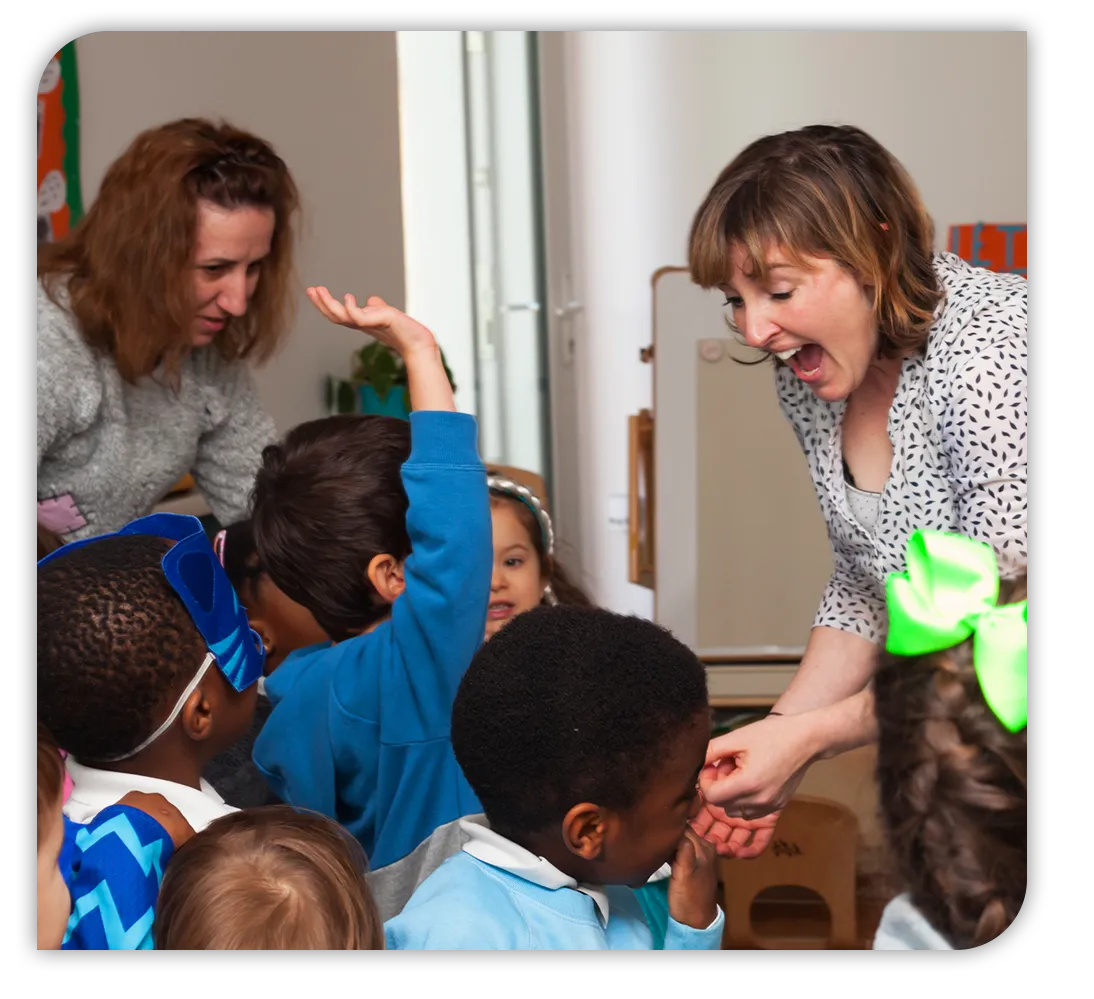
Inviting Spaces & Mixed-Age Learning
Our thoughtfully designed classrooms feature child-sized furniture and accessible materials, creating a sense of belonging.
Mixed-age groupings create a strong community where younger children learn from older peers and older children develop leadership skills through mentorship.
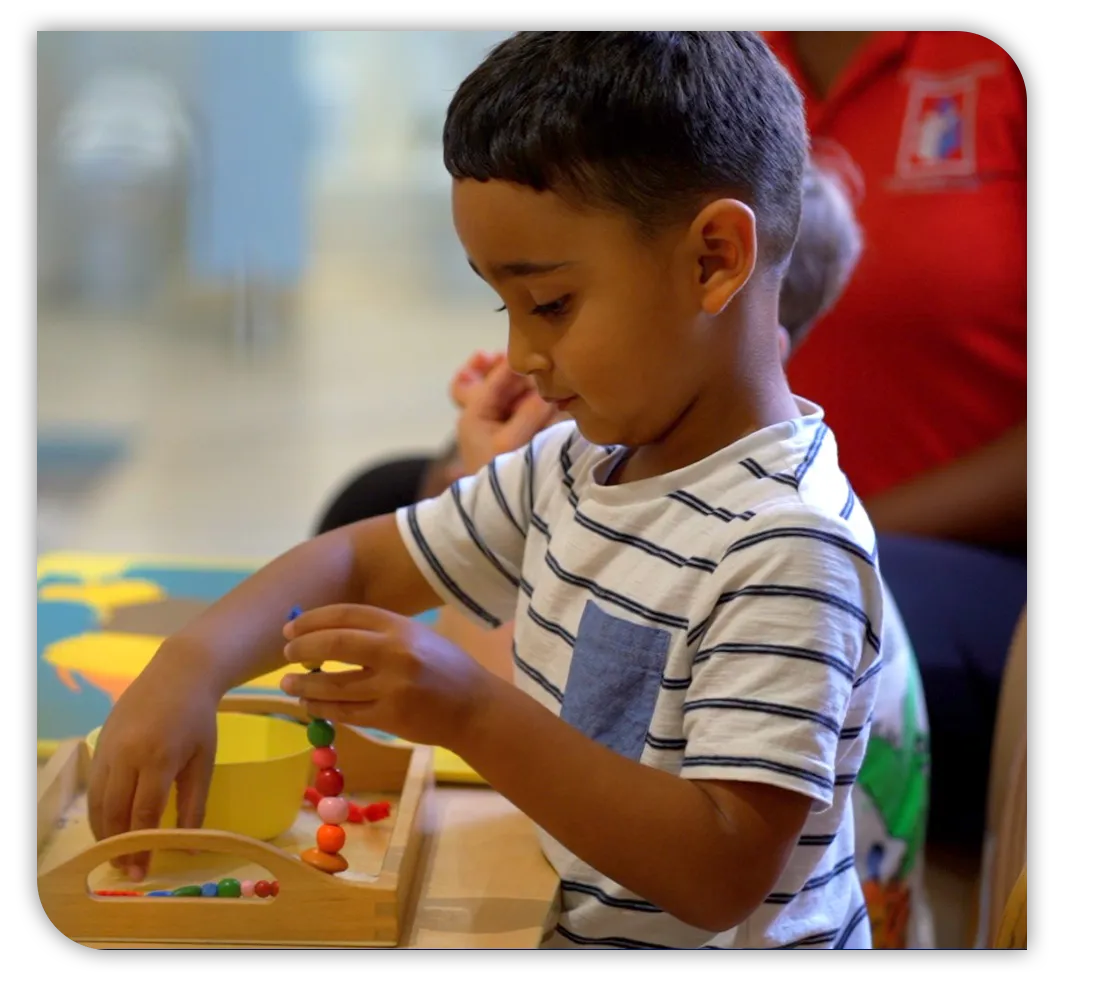
Independent Learning & Practical Life Skills
Self-correcting materials empower children to explore freely, build self-confidence, and develop problem-solving skills.
Practical life activities such as dressing, cleaning, and using good manners encourage independence and responsibility.
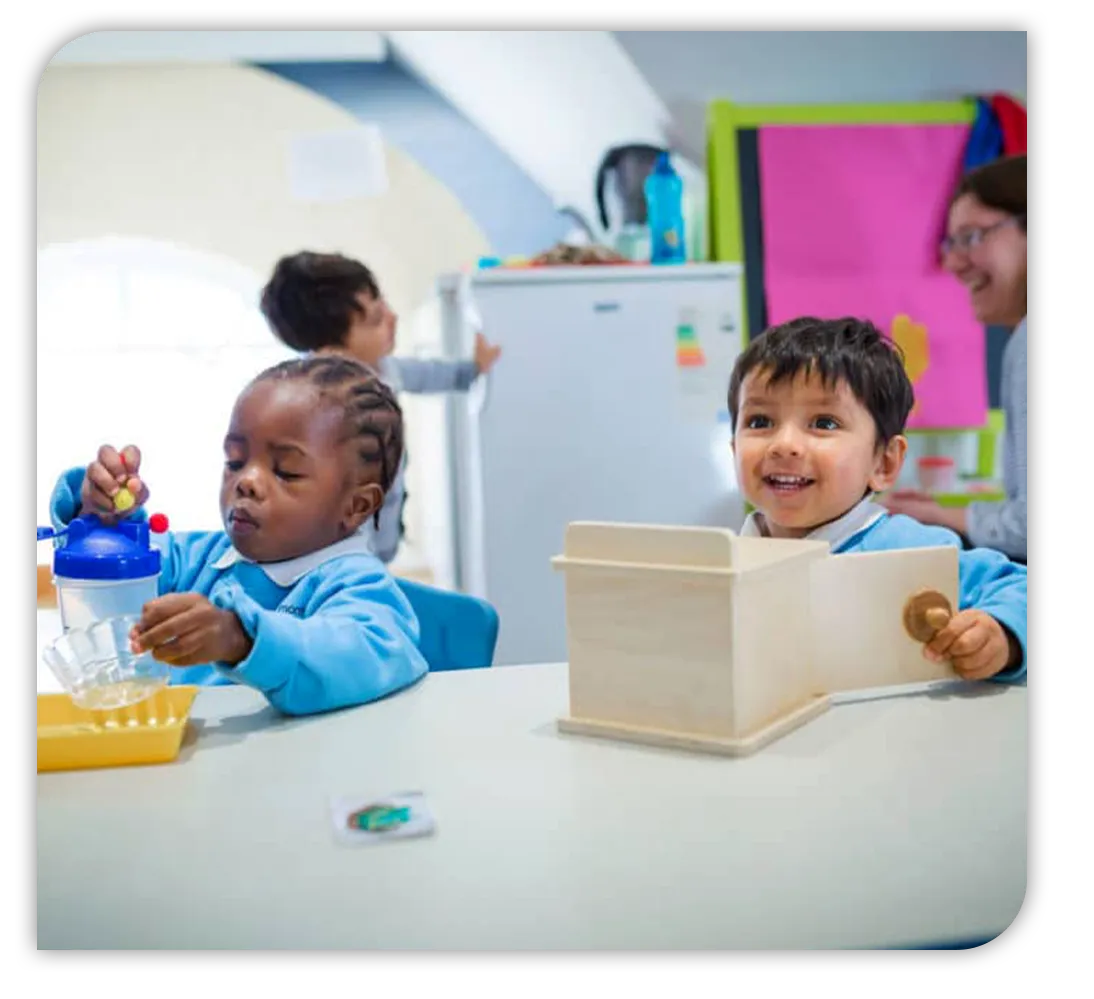
Sensorial & Mathematical Exploration
Through hands-on learning, children engage their senses to build foundational math and reasoning skills. Manipulatives like rods and beads make abstract concepts concrete, encouraging curiosity and critical thinking.
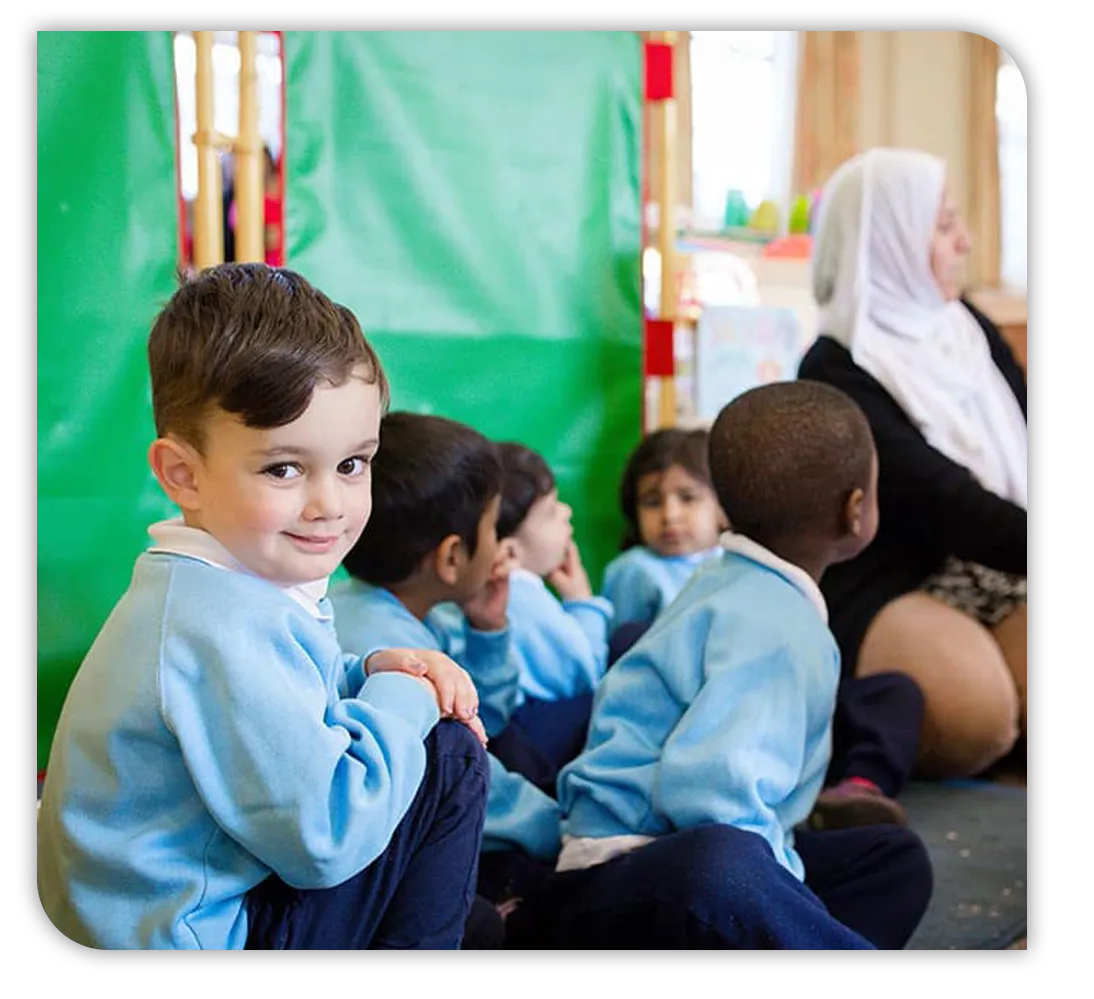
Language Development & Cultural Awareness
Our responsive teachers develop pre-literacy skills through storytelling and conversation. Weekly language lessons, along with cultural exploration in geography, music, and traditions, broaden children’s worldviews and deepen their understanding of diversity.
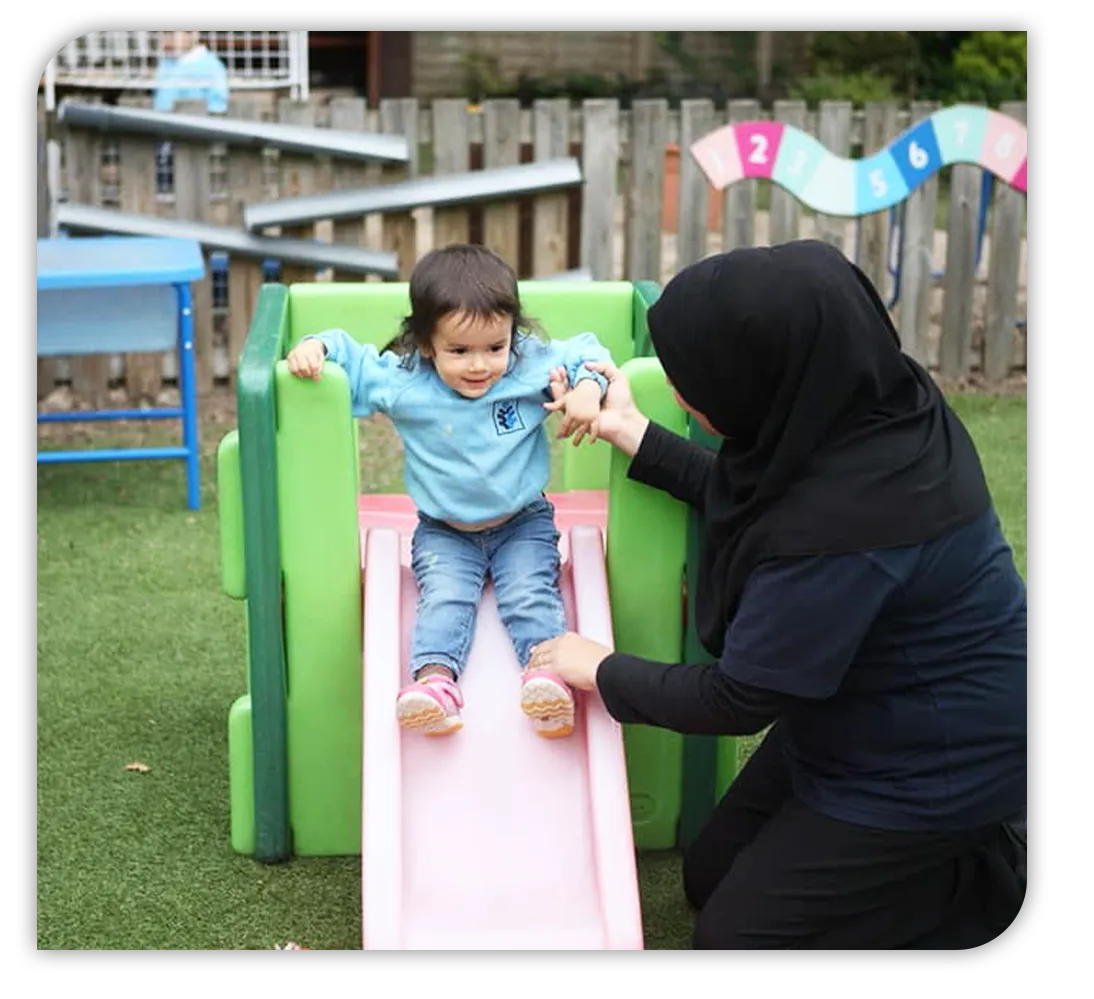
Outdoor Play & Creative Expression
Daily outdoor play promotes physical development, problem-solving, and social interaction. Art, music, and movement activities spark creativity and refine fine motor skills, making learning both joyful and meaningful.
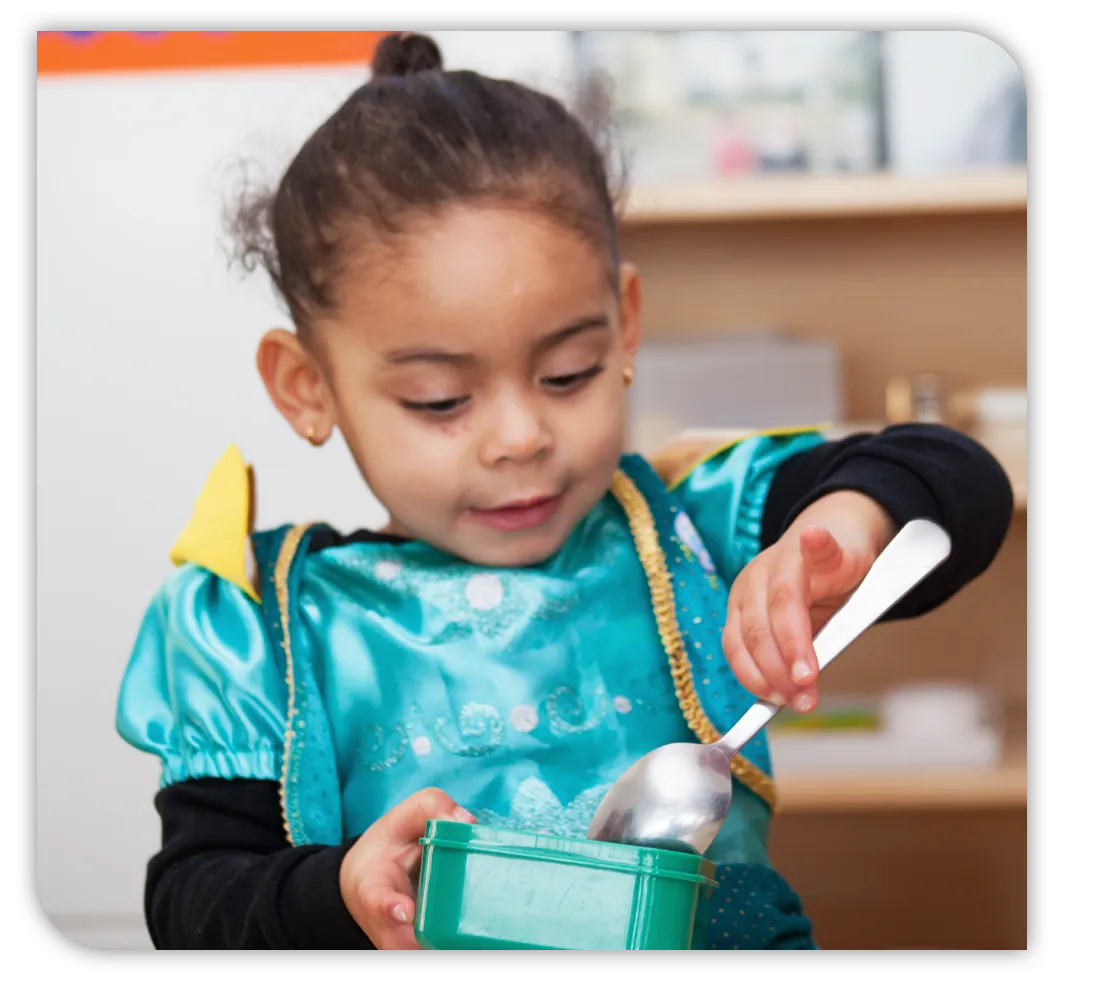
Healthy Habits & Life Science
Children take an active role in preparing healthy snacks, promoting independence and awareness of good nutrition. Nature-based learning, including plant and animal observation, nurtures curiosity about the world and a love for life sciences.
FAQ’s regarding the Montessori Curriculum
What is the Montessori curriculum, and how does it differ from traditional education?
The Montessori curriculum emphasises child-led, hands-on learning in areas such as Practical Life, Sensorial, Mathematics, Language, and Cultural studies. Unlike traditional education, which often follows a rigid timetable and teacher-directed lessons, Montessori classrooms allow children to explore at their own pace in a prepared environment. This encourages independence, creativity, and intrinsic motivation while avoiding the pressure of grades or standardised tests.
The personalised approach helps children develop critical thinking and problem-solving skills, making them more adaptable and confident learners compared to the one-size-fits-all model of traditional education.
How does Montessori promote independence in children?
Montessori encourages children to choose their activities and work at their own pace within a structured environment. This autonomy helps them develop self-discipline, decision-making skills, and confidence. Teachers act as guides rather than instructors, allowing children to take ownership of their learning.
The focus on independence prepares children for real-world challenges by encouraging responsibility and self-reliance from an early age, qualities often underemphasised in traditional classrooms.
Does Montessori prepare children for future academic success?
Yes, Montessori education equips children with strong foundational skills in reading, math, and social-emotional development. Research has shown that Montessori students often outperform their peers in standardised tests and demonstrate advanced social skills.
The emphasis on mastery rather than memorisation ensures deeper understanding and long-term retention of concepts, unlike traditional methods that prioritise test performance over holistic learning.
How does the mixed-age classroom benefit my child?
Montessori classrooms include mixed-age groups where older children mentor younger ones and younger children learn by observing their peers. This setup encourages collaboration, leadership skills, and a sense of community.
Mixed-age classrooms create a collaborative environment that nurtures empathy and teamwork, skills essential for success in both academic and social contexts.
How is discipline handled in Montessori schools?
Discipline in Montessori is internalised rather than imposed. Children are guided to understand the consequences of their actions through freedom within boundaries. This approach nurtures self-control and respect for others.
Unlike traditional schools where discipline is often externally enforced by teachers, Montessori's method empowers children to regulate their behaviour independently, leading to more meaningful personal growth.
Parent Resources
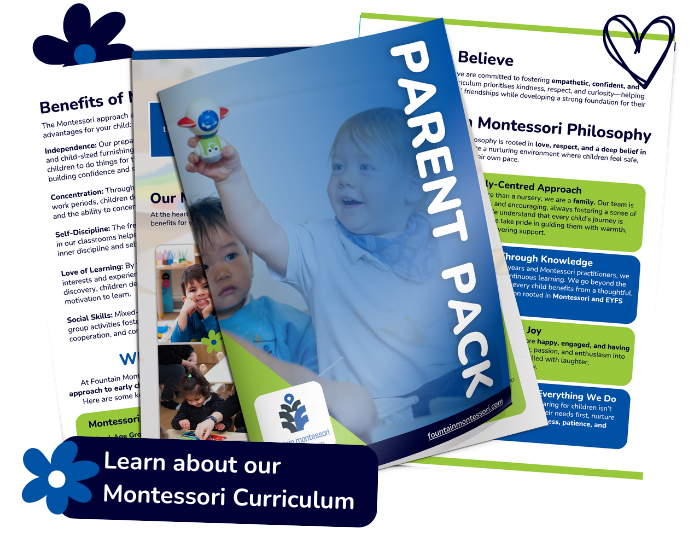
Get Our Free Parent Pack
We’d love to send you a FREE parent pack, full of helpful information about Fountain Montessori…
Edgware Nursery
St. Margaret's, Parish Hall, Rectory Ln, Edgware HA8 7LG
Colindale Nursery
2 Avery Court, 45 Capitol Way, London NW9 0BF
Colindale Nido Nursery
Unit 6, 43 Capitol Way, London NW9 0AW
St Albans Nursery
77 Holywell Hill, St Albans AL1 1HF
